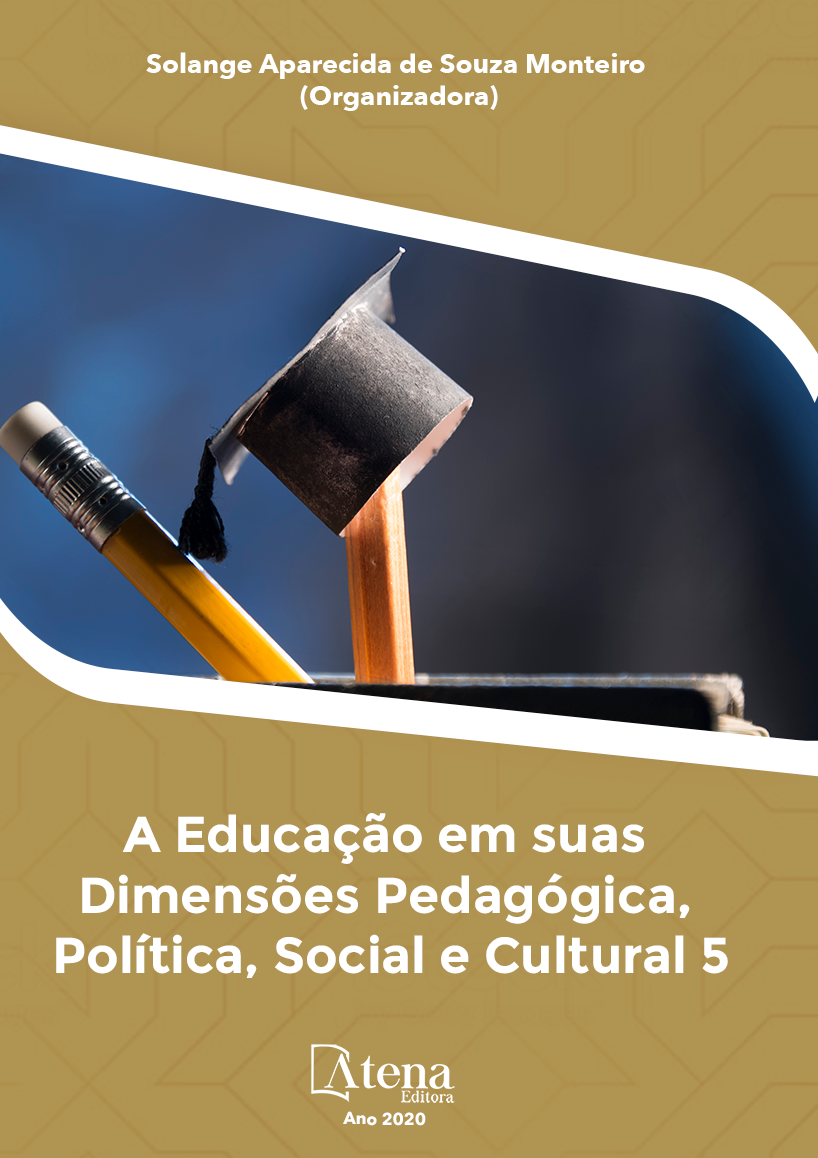
O ACOMPANHAMENTO DE UM ADOLESCENTE COM MÚLTIPLAS DEFICIÊNCIAS NO PROAMDE/UFAM EM PARINTINS - AMAZONAS
O presente artigo buscou informações
sobre os benefícios das práticas regulares
de atividades física em um adolescente com
múltiplas deficiências. Trata-se de um estudo
de caso, tendo como objetivo investigar as
mudanças motoras, cognitivas e sociais do
indivíduo ao longo das intervenções do projeto
de extensão. É um estudo de caráter qualitativo
e descritivo, e os instrumentos utilizados para
coleta de dados foram informações diretas
nas intervenções, construção de relatórios de
observações e conversas informais com a mãe
do adolescente. A coleta de dados teve início
no mês de maio de 2015, se estendendo até
julho de 2016. O sujeito da pesquisa foi um
adolescente de 15 anos com diagnóstico de
múltiplas deficiências (deficiência física, baixa
visão, paralisia e autismo) participante do
projeto PROAMDE/PARINTINS. As mudanças
observáveis estão relacionadas em seu aspecto
comportamental e no motor. No aspecto
social apresentou maior interação com os
demais participantes do projeto, nos aspectos
cognitivos apresentou noção de tempo, noção
de espaço, noção de perigo e demonstrou
preocupação com a sua própria segurança.
Sobre a capacidade funcional, o mesmo não é
totalmente independente, pois recorre à mãe
para realizar algumas atividades pessoais.
Após um período de intervenção contínua,
quando o participante estava em equilíbrio
dinâmico já conseguia pisar com pé direito
encostando o calcâneo no chão, enquanto o do
lado esquerdo apenas as pontas. Em relação à
flexibilidade do adolescente identificamos que
esta é limitada, consideramos a flexibilidade do
sujeito referente às articulações dos membros
superiores e inferiores. Diante do que foi
desenvolvido durante as fases de observações
e intervenções da pesquisa apresentamos
as contribuições que a prática frequente
de atividades motoras podem trazer a uma
pessoa deficiente. Identificamos que as dificuldades apresentadas pelo adolescente
inicialmente, foram minimizadas após uma exploração constante das atividades físicas.
O ACOMPANHAMENTO DE UM ADOLESCENTE COM MÚLTIPLAS DEFICIÊNCIAS NO PROAMDE/UFAM EM PARINTINS - AMAZONAS
-
DOI: 10.22533/at.ed.3132013024
-
Palavras-chave: Múltiplas deficiências. Práticas motoras. Parintins
-
Keywords: Multiple disabilities. Motor practices. Parintins
-
Abstract:
This article sought information on the benefits of regular physical activity
practices in an adolescent with multiple disabilities. This is a case study, aiming to
investigate the social, cognitive and motor changes of the individual throughout
the extension project interventions. It is a qualitative and descriptive study, and
the instruments used for data collection were direct information on interventions,
construction of observation reports and informal conversations with the adolescent’s
mother. Data collection began in May 2015, extending to July 2016. The research
subject was a 15-year-old adolescent diagnosed with multiple disabilities (physical
disability, low vision, paralysis and autism) participating in the PROAMDE project. -
PARINTINS. Observable changes are related in their behavioral and motor aspects. In
the social aspect it presented greater interaction with the other project participants, in
the cognitive aspects it presented the notion of time, the notion of space, the notion of
danger and showed concern for its own safety. Regarding functional capacity, it is not
totally independent, since it resorts to the mother to perform some personal activities.
After a period of continuous intervention, when the participant was in dynamic balance,
he could already step on his right foot, touching his heel to the floor, while the one on
the left side only the tips. Regarding the flexibility of the adolescent we identified that
it is limited, we consider the subject’s flexibility regarding the upper and lower limb
joints. Given what was developed during the observation and intervention phases of
the research we present the contributions that the frequent practice of motor activities
can bring to a disabled person. We identified that the difficulties initially presented by
adolescents were minimized after a constant exploration of physical activities.
-
Número de páginas: 16
- Lucas Diógenes Leão
- Mariana Pereira de Andrade
- Naiana Lima Rodrigues


